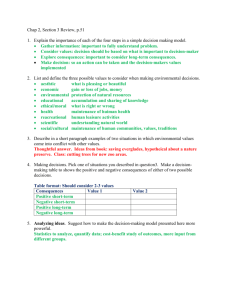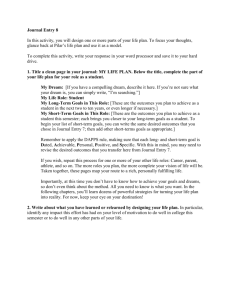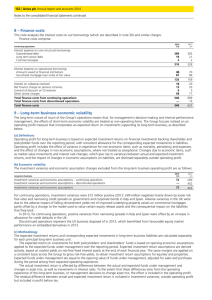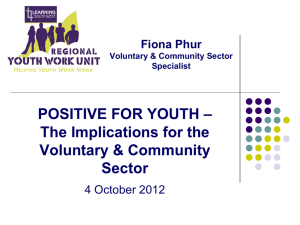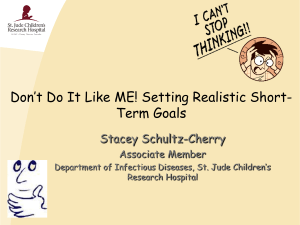Working Groups - Princeton University
advertisement
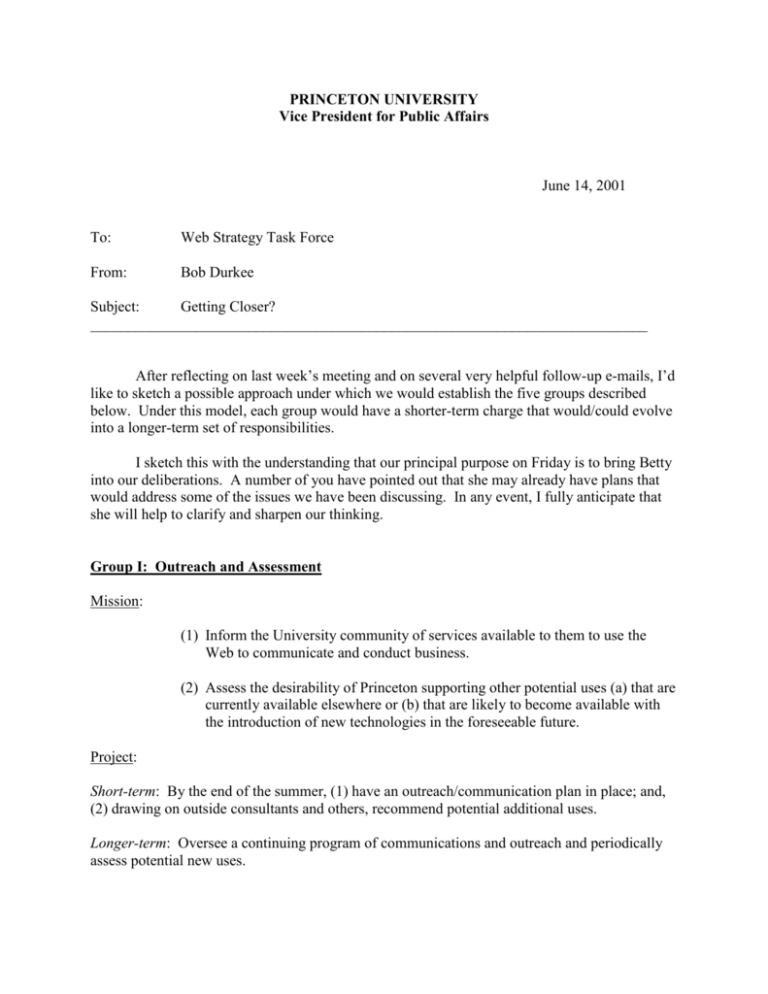
PRINCETON UNIVERSITY Vice President for Public Affairs June 14, 2001 To: Web Strategy Task Force From: Bob Durkee Subject: Getting Closer? __________________________________________________________________________ After reflecting on last week’s meeting and on several very helpful follow-up e-mails, I’d like to sketch a possible approach under which we would establish the five groups described below. Under this model, each group would have a shorter-term charge that would/could evolve into a longer-term set of responsibilities. I sketch this with the understanding that our principal purpose on Friday is to bring Betty into our deliberations. A number of you have pointed out that she may already have plans that would address some of the issues we have been discussing. In any event, I fully anticipate that she will help to clarify and sharpen our thinking. Group I: Outreach and Assessment Mission: (1) Inform the University community of services available to them to use the Web to communicate and conduct business. (2) Assess the desirability of Princeton supporting other potential uses (a) that are currently available elsewhere or (b) that are likely to become available with the introduction of new technologies in the foreseeable future. Project: Short-term: By the end of the summer, (1) have an outreach/communication plan in place; and, (2) drawing on outside consultants and others, recommend potential additional uses. Longer-term: Oversee a continuing program of communications and outreach and periodically assess potential new uses. 2 Composition: Representatives from CIT and Communications, plus others if interested. Group 2: Policy Mission: Short-term: Develop a set of policy statements to guide University Web usage. Longer-term: Evolve into a Web Policy Council composed of senior-level providers and users that would provide continuing policy guidance and help to set priorities and resolve disputes. Project: Short-term: By the end of the summer, bring to the task force a set of policy statements that can help guide continuing University use and support of the Web. Policy statements might be along the lines of the following: It is the University’s policy to encourage and support increasing use of the Web to communicate with internal and external audiences, to enhance programs of teaching and research, and to conduct the University’s business. The University recognizes that some uses of the Web will supercede and substitute for existing practices while other uses will complement other means of communicating, conducting business, or engaging in teaching and research. It is the University’s policy to encourage creativity, flexibility and innovation in the use of the Web, but also to establish basic technical, design, content, and legal standards for “official” University websites. It is the University’s policy to require each course, academic department/program, and administrative office to maintain a website that meets certain established standards, and also to provide the tools, templates and training necessary for courses, departments and offices to meet this requirement. It is the University’s policy to use the Web as its primary vehicle for making timely announcements of University news, for communicating emergency information, and for providing information about events and activities (calendar). It is the University’s policy to make continuous efforts to increase the functionality and ease of use of University websites, and thereby to increase the success and satisfaction of visitors to University websites. Composition: To be determined. 3 Group 3: Design and Standards Mission: Short-term: (1) Define what is meant by an official University website and the nature and level of support to which such sites are entitled. (2) Create a set of basic technical standards and tools (search engines, contact/ complaint techniques, e-transaction management, official directories or link lists, etc.) that all University websites could incorporate and propose which, if any, should be mandatory. (3) Create a University style guide, design templates, and content management programs that can be used, as desired, by creators and managers of University websites. (4) Develop policies and procedures for training and assistance for those managing a University website. (5) Recommend strategies for dealing with issues of security, legal requirements, access for those with disabilities, etc. Longer-term: Serve as a continuing design and standards group. Project: By the end of the summer, complete work on as much of the above as possible and adopt a work-plan and timetable for completing the rest of the proposed short-term mission. Composition: To be determined. Group 4: Home Page Mission: Short-term: (1) Assess both internal and external user satisfaction (survey) with the current home page and its key links. (2) Thoroughly review the structure, organization, design, content and ease of navigation of the home page and work with the Communications Office as it develops a new and improved arrangement for the page and selected links to it. Longer-term: Develop on-going procedures for assessing use and user satisfaction. Project: The surveying and assessment should be completed over the summer with redesign of the home page and initial attention to key links beginning as soon as possible (with timing somewhat dependent on the hiring of the Communications Office web manager). 4 Composition: Led by Communications Office with active CIT support and others (Karen Jezierny, Kurt Kehl, Kathy Taylor, Maria Gardner) who may be interested. Group 5: Transactions Mission: Short-term: Research, share expertise and make recommendations about all of the transactional "doing business," rather than information-providing, aspects of the Web, including e-commerce, ticket sales, student admissions, job applications, library uses, forms, etc. Longer-term: Provide continued oversight and assessment of transactional uses. Project: Report on current activities and future plans by the end of the summer. Composition: Several members of the task force (Nancy Costa, Dave Koehler, Jack Yuncza, Sandy Mawhinney) are already heavily involved in these questions.
